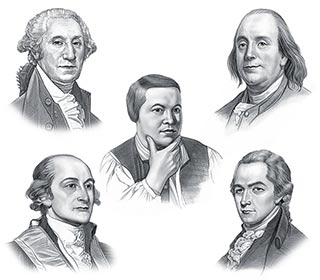Although the repeal of the Stamp Act was supported by some British politicians, in particular, William Pitt, the Elder, who argued that it was unconstitutional to impose taxes upon the colonies, there were many who opposed the repeal. Those who opposed the repeal of the Stamp Act had no wish to send a message across the Atlantic that ultimate authority lay in the colonial legislatures. The Declaratory Act was their response to the repeal of the Stamp Act.
The Declaratory Act
The Declaratory Act was passed by the British parliament to affirm its power to legislate for the colonies “in all cases whatsoever”. The declaration stated that Parliament's authority was the same in America as in Britain and asserted Parliament's authority to pass laws that were binding on the American colonies. The colonies did not dispute the notion of Parliamentary supremacy over the law. But the ability to tax without representation was another matter. The Declaratory Act made no such distinction. The reaction of the colonies to the repeal of the Stamp Act was to celebrate their victory. William Pitt was praised as a deliverer. Statues of him were placed in the streets and pictures of him were hung in public halls. Whilst basking in the glory of their political victory over the British they lost sight of the significance of the Declaratory Act.
Declaratory Act of 1766
The Declaratory Act of 1766 that asserted Parliament's authority to pass binding laws on the colonies contained the phrase “in all cases whatsoever” which could surely be taken to mean the power to tax. The Declaratory Act of 1766 was almost an exact copy of the 1719 Irish Declaratory Act which forced Ireland into total submission under the Crown.
